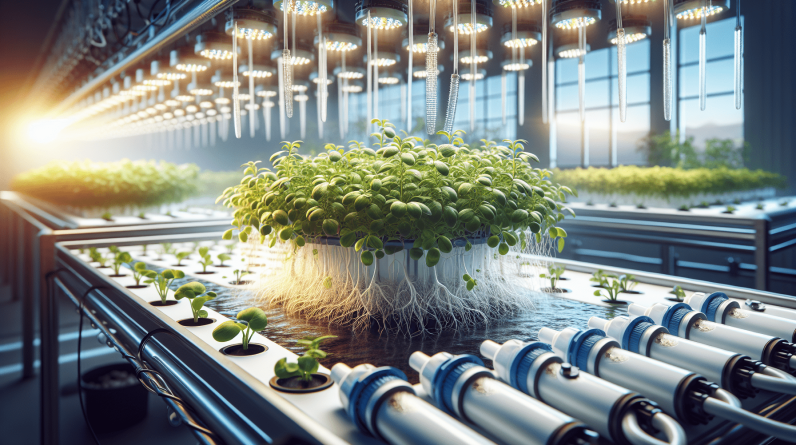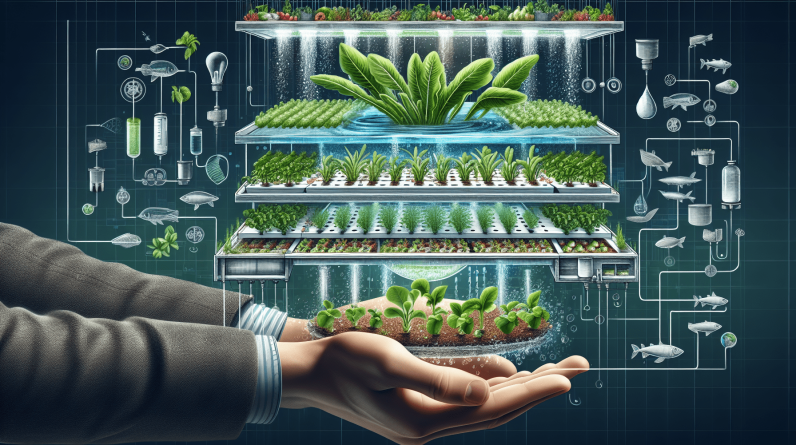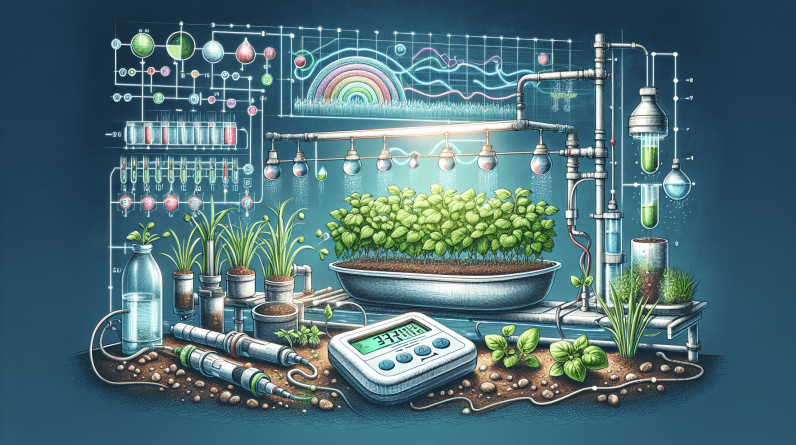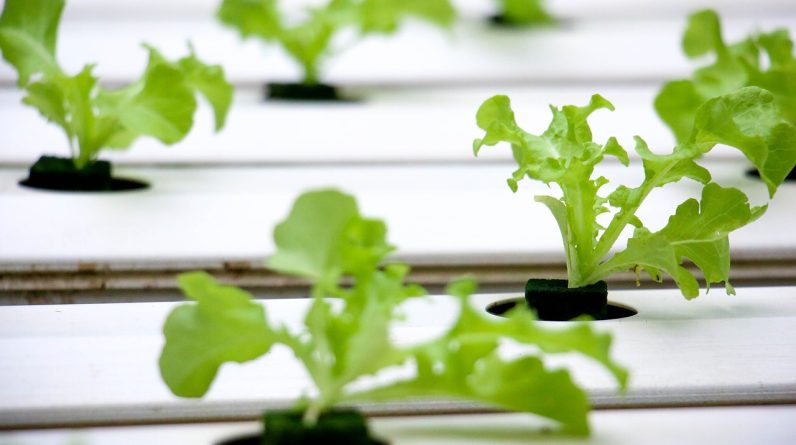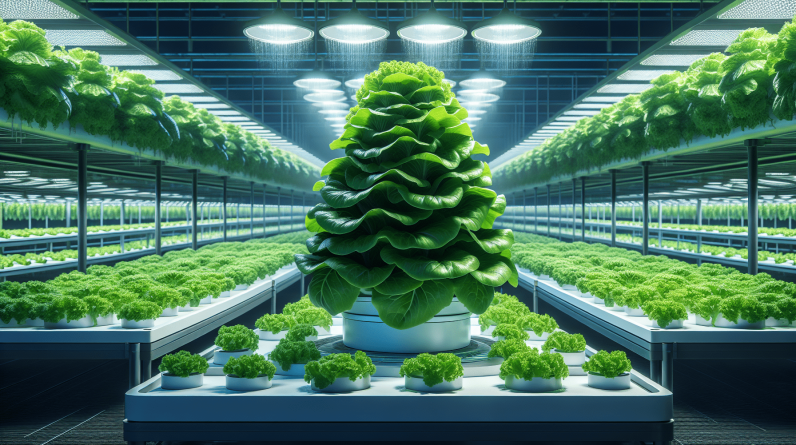
Have you ever wondered how to integrate organic nutrients into hydroponic systems? By utilizing organic nutrients, you can enhance the growth and quality of your plants while maintaining an eco-friendly approach to gardening. In this guide, you will learn everything you need to know about implementing organic nutrients in hydroponic systems. Let’s get started!
Understanding Hydroponic Systems
Before diving into the specifics of organic nutrients, it’s essential to understand the basics of hydroponic systems. Hydroponics is a method of growing plants without soil, using a water-based nutrient solution. This solution is delivered directly to the plant’s roots, providing them with essential elements for growth. By eliminating the need for soil, hydroponic systems offer numerous advantages, including faster growth rates, higher yields, and water conservation.
Hydroponic systems come in various types, such as Deep Water Culture (DWC), Nutrient Film Technique (NFT), and Ebb and Flow systems. Each system has its unique characteristics and requirements, but they all share the common goal of delivering nutrients to plants efficiently. Understanding the type of hydroponic system you are using will help you choose the right organic nutrients for optimal plant growth.
Benefits of Using Organic Nutrients
Organic nutrients play a crucial role in the success of plants grown in hydroponic systems. Unlike synthetic fertilizers, organic nutrients are derived from natural sources, such as compost, manure, or fish emulsion, making them more sustainable and environmentally friendly. Organic nutrients provide a balanced mix of essential minerals and micronutrients that promote healthy plant growth and improve the overall quality of the produce.
By utilizing organic nutrients in hydroponic systems, you can enhance the flavor, aroma, and nutritional content of your crops. Organic nutrients also help create a more robust root system, leading to increased nutrient uptake and better resistance to diseases and pests. Additionally, organic nutrients support the growth of beneficial microorganisms in the root zone, improving soil health and plant vitality.

Choosing the Right Organic Nutrients
When selecting organic nutrients for your hydroponic system, it’s essential to consider the specific requirements of your plants. Different crops may have varying nutrient needs at different growth stages, so it’s crucial to choose a nutrient solution that meets these requirements. Look for organic nutrients that provide a balanced mix of macro and micronutrients, as well as beneficial organic compounds like humic acids and fulvic acids.
Organic nutrients come in various forms, including liquid concentrates, granular supplements, and dry soluble powders. Liquid nutrients are convenient for hydroponic systems, as they can be easily mixed with water and delivered directly to the plant roots. Granular supplements are ideal for slow-release nutrients, providing a steady supply of organic compounds over time. Dry soluble powders are easy to store and transport, making them a practical choice for hydroponic gardeners.
Considerations When Choosing Organic Nutrients
Before purchasing organic nutrients for your hydroponic system, there are several factors to consider. First, assess the nutrient requirements of your plants based on their growth stage and specific needs. Consider the pH and EC levels of your nutrient solution, as organic nutrients may impact the overall nutrient balance in your system. It’s also essential to choose high-quality organic nutrients from reputable manufacturers to ensure the purity and efficacy of the product.
When selecting organic nutrients, opt for products that are certified organic by recognized organizations, such as the USDA or OMRI. This certification ensures that the nutrients are derived from natural sources and do not contain harmful chemicals or synthetic additives. Additionally, look for organic nutrients that are specifically formulated for hydroponic systems, as they are designed to dissolve easily in water and be readily absorbed by plants.

Implementing Organic Nutrients in Hydroponic Systems
Now that you have chosen the right organic nutrients for your hydroponic system, it’s time to implement them effectively. The key to successful nutrient delivery in hydroponics is maintaining the optimal nutrient balance and pH level in the nutrient solution. Organic nutrients can interact with the water chemistry in your system, so it’s essential to monitor and adjust the nutrient levels regularly.
Organic nutrients may require additional steps to dissolve and mix properly in the water. Some organic compounds may settle at the bottom of the reservoir or clog the irrigation system, affecting nutrient distribution to the plants. To prevent clogging and ensure uniform nutrient delivery, it’s recommended to use a filter or mesh to strain out any undissolved particles before feeding the nutrient solution to your plants.
Nutrient Management and Monitoring
To ensure the efficient use of organic nutrients in your hydroponic system, it’s essential to monitor the nutrient levels and pH of your nutrient solution regularly. Use a quality pH meter and EC meter to measure the pH and electrical conductivity of the nutrient solution, as these parameters can impact nutrient uptake and plant health. Adjust the pH level of the nutrient solution using organic pH adjusters if necessary to maintain the optimal range for nutrient absorption.
Keep track of the nutrient concentration in your hydroponic system by measuring the EC levels regularly. High EC levels can indicate an excess of nutrients in the solution, leading to nutrient imbalances and potential damage to the plants. Dilute the nutrient solution with water if the EC levels are too high, or add more organic nutrients if the levels are too low. Monitoring nutrient levels and pH regularly will help you prevent nutrient deficiencies or toxicities in your plants.

Tips for Maximizing Nutrient Absorption
To maximize the absorption of organic nutrients in your hydroponic system, there are several strategies you can implement. First, ensure that your nutrient solution is well-aerated to provide oxygen to the plant roots, enhancing nutrient uptake. Oxygen plays a vital role in nutrient absorption and root respiration, so maintaining adequate oxygen levels in the root zone is crucial for plant health.
Promote healthy root development by using organic root stimulants and beneficial microorganisms in your hydroponic system. Root stimulants contain growth-promoting hormones and vitamins that stimulate root growth and increase nutrient uptake. Beneficial microorganisms, such as mycorrhizal fungi and rhizobacteria, form symbiotic relationships with plant roots, enhancing nutrient absorption and protecting the plants from pathogens.
Crop-Specific Nutrient Management
Different crops have varying nutrient requirements, so it’s essential to adjust your organic nutrient regimen based on the type of plants you are growing. Leafy greens, like lettuce and spinach, require higher nitrogen levels for leafy growth, while fruiting crops, such as tomatoes and peppers, need more potassium and phosphorus for flower and fruit development. Understanding the nutrient needs of your crops will help you tailor your organic nutrient program to achieve optimal growth and yield.
Consider using organic supplements, such as seaweed extract or fish hydrolysate, to provide additional nutrients and natural growth stimulators to your plants. These supplements can enhance root development, increase nutrient absorption, and improve overall plant health. Experiment with different organic additives to find the best combination that maximizes nutrient absorption and plant growth in your hydroponic system.
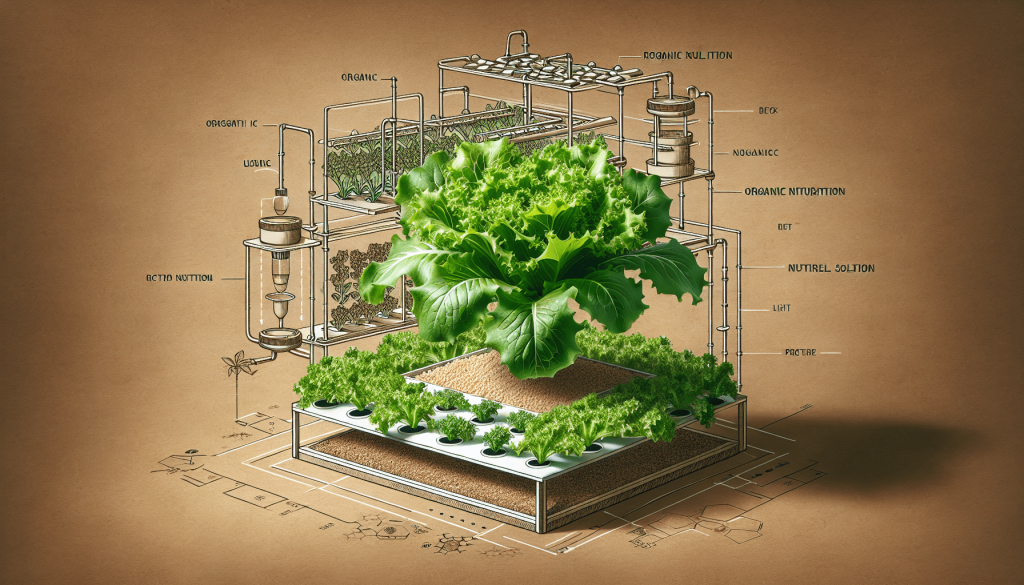
Troubleshooting Common Issues
While implementing organic nutrients in hydroponic systems offers many benefits, you may encounter some common issues along the way. It’s essential to be proactive and address any nutrient-related problems promptly to prevent damage to your plants. Here are some common issues and troubleshooting tips to help you maintain a healthy hydroponic garden.
Nutrient Deficiencies
Nutrient deficiencies can occur when plants are not receiving an adequate supply of essential nutrients, leading to stunted growth, yellowing leaves, and poor fruit development. To address nutrient deficiencies, identify the specific nutrient lacking in your plants, and adjust your organic nutrient regimen accordingly. Supplement the nutrient solution with organic foliar sprays or root drenches to correct deficiencies and restore plant health.
Nutrient Imbalances
Nutrient imbalances can occur when the nutrient levels in the solution are not properly adjusted, resulting in excess or deficient nutrients in the plants. Monitor the EC levels and pH of your nutrient solution regularly to ensure a balanced nutrient ratio for optimal plant growth. Flush the system with clean water to correct nutrient imbalances and prevent nutrient toxicities in your plants.
Algae Growth
Algae growth in hydroponic systems can be a common issue, especially when organic nutrients are used. Algae thrive in nutrient-rich environments with sunlight exposure, clogging irrigation lines and competing with plants for essential nutrients. To control algae growth, cover the reservoir with a light-proof material to prevent sunlight exposure, and use organic algaecides or beneficial microorganisms to inhibit algae growth naturally.
Root Rot
Root rot is a serious issue that can occur in hydroponic systems with organic nutrients, leading to plant wilting, poor nutrient absorption, and root decay. To prevent root rot, maintain proper oxygen levels in the root zone by aerating the nutrient solution and preventing water stagnation. Use organic beneficial bacteria and enzymes to promote a healthy root environment and suppress harmful pathogens that cause root rot.
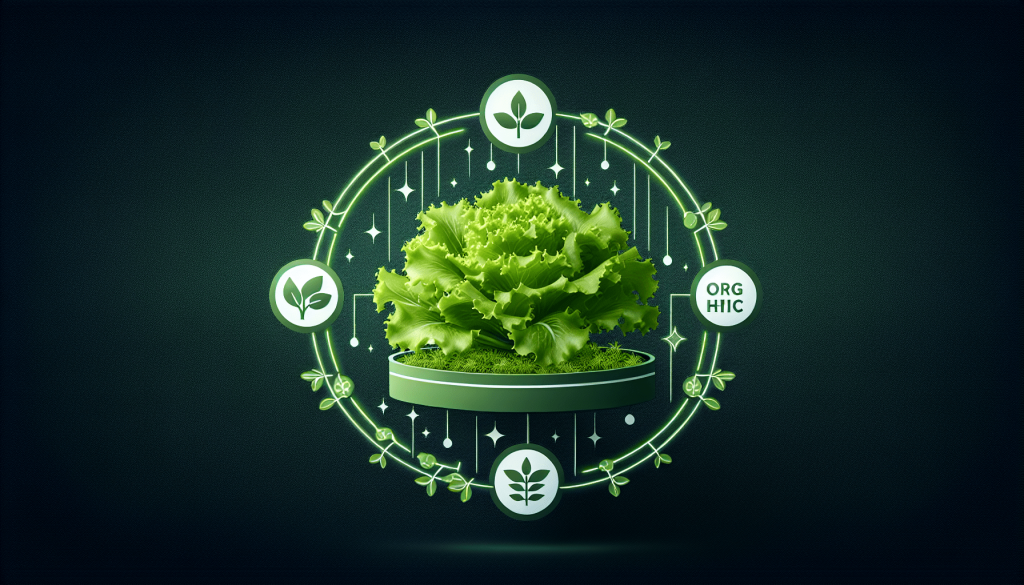
Conclusion
Implementing organic nutrients in hydroponic systems is an excellent way to enhance plant growth, improve produce quality, and maintain a sustainable gardening approach. By understanding the benefits of organic nutrients, choosing the right products, and implementing effective nutrient management strategies, you can optimize your hydroponic garden for maximum yield and plant health.
Remember to monitor your nutrient levels, pH balance, and plant health regularly to prevent common issues and ensure the long-term success of your hydroponic system. Experiment with different organic nutrients and supplements to find the best combination that works for your plants and helps you achieve your gardening goals. With the right knowledge and techniques, you can enjoy a thriving hydroponic garden filled with fresh, nutrient-rich crops grown with organic care.





